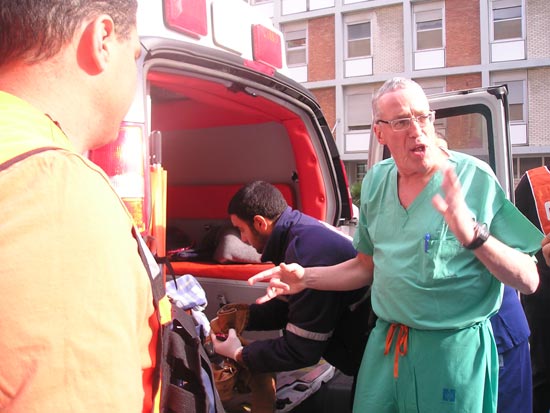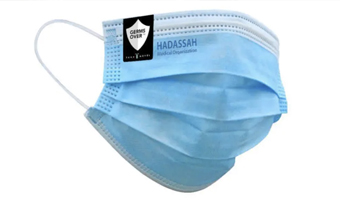
“If they would ask me to go there to treat their patients, as we did in the past before Hamas took control over Gaza, I would go,” he continues. “In the past, we used to go there and also bring children to Hadassah for treatment.”
Prof. Rivkind was interviewed by journalists from O Estado de Sao Paulo, the leading Brazilian newspaper, andANSA Brazil, one of the most important news agencies in Brazil.
Describing the Hadassah Medical Organization as an “island of peace,” Prof. Rivkind explained his philosophy of medicine: “I value life and will do everything possible to save a life.
We shouldn’t be playing God and decide who lives and who doesn’t; we must do everything to keep the person alive.
If that’s a person that deserves to go to prison, let it be so.”
Prof. Rivkind recalled the surgery he performed in the 1990s on Abu Hassan Salah, a senior Hamas leader, who was responsible for the bombing of Israeli Bus #18. He was captured by an Israeli soldier and brought to Hadassah. Prof. Rivkind received a call in the middle of the night that he was needed for surgery. He saved the man’s life and now that Hamas leader is in prison, serving a sentence for the murder of 58 people.
Going back 20 years, Prof. Rivkind has been conducting a program for Hadassah’s medical school students which trains them in the protocol for handling a terrorist attack or mass casualty event. For Rivkind, the biggest reward is to see his students employing the protocol. “Once, one of my students was on a train when an accident happened in Tel Aviv,” Prof. Rivkind relates. “He ran out of the train, wore a stethoscope in order to be identified as a doctor, and did a full triage on the spot. Later on, he called me and thanked me. ‘I did exactly what you taught us in the course,’ the doctor said.”
When asked by the ANSA reporter whether he believes an agreement can be reached between Hamas and Israel, Prof. Rivkind replied: “I am a big optimist. We proved that we make peace.
We made peace with Lebanon. We fought with Egypt during the Six-Day War and then we signed a peace agreement.”









